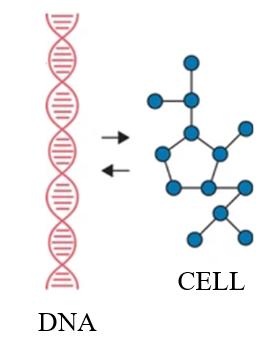-
- Development of Small Molecule Drug for Stroke
- Targeted Stroke Drug Development
- Stroke Drug Development Targeting Noncoding RNAs
- Stroke Drug Development Targeting PSD-95
- Stroke Drug Development Targeting Tau
- Stroke Drug Development Targeting Heat Shock Protein 70
- Stroke Drug Development Targeting Notch
- Stroke Drug Development Targeting Guanosine
- Stroke Drug Development Targeting Nogo-A
- Stroke Drug Development Targeting Nrf2
- Stroke Drug Development Targeting DAPK1
- Stroke Drug Development Targeting AMPK
- Stroke Drug Development Targeting Caveolin-1
Stroke Drug Development Targeting Cell Death- Stroke Drug Development Targeting Ferroptosis
- Stroke Drug Development Targeting Pyroptosis
- Stroke Drug Development Targeting Necroptosis
Stroke Drug Development Targeting Different Cell TypesStroke Drug Development Targeting Other Components- Stroke Drug Development Targeting Mitochondria
- Stroke Drug Development Targeting Autophagy
- Stroke Drug Development Targeting Epigenetic Mechanisms
- Stroke Drug Development Targeting Blood Brain Barrier
- Stroke Drug Development Targeting Excitotoxicity
- Stroke Drug Development Targeting NMDAR
- Stroke Drug Development Targeting The GluN2B Subunit of NMDAR
- Stroke Drug Development Targeting Glutamate
Stroke Drug Development Targeting Epigenetic Mechanisms
Epigenetics mechanisms include DNA methylation, histone modifications, and noncoding RNAs. These genetic modifications can interact with and influence the disease through various pathways. There is increasing evidence that epigenetic modifications regulate the pathogenesis of vascular disease in humans and animal models of stroke. Therefore, Ace Neuroscience provides comprehensive services about the development of stroke drugs targeting epigenetic mechanisms.

Target Identification & Characterization
DNA methylation and histone modification processes have a few important targets, and modulation of these targets can effectively modulate the pathological process of stroke. Therefore, it is an effective way to develop drugs to treat stroke by screening effective targets. Based on our existing technology, Ace Neuroscience provides comprehensive platforms and services to screen targets related to epigenetic mechanisms.
- We perform high-throughput screening of candidate targets for pathways related to epigenetic mechanisms in stroke through genomics, proteomics, and proteomic platforms.
- We develop in vitro and in vivo models with different epigenetic states by drug administration and genetic manipulation to evaluate the role of candidate targets.
- We investigate the mechanism of action of candidate targets through gene expression profiling, signaling pathway studies, and bioinformatics analysis.
Screening of Epigenetic Modulators
Ace Neuroscience provides different screening platforms for a range of modulators for different epigenetic process targets, allowing you to screen potential modulators quickly and accurately. Based on our small molecule library, including ultra-large compound library, natural product library, and fragment library, we have established complete high-throughput screening platforms and virtual screening platforms to meet the needs of various targets.
We provide suitable in vitro and in vivo experimental models that have validated the role of candidate modulators.
Preclinical Evaluation of Drug Candidates for the Treatment of Stroke
With potential drug candidates for the treatment of epigenetic mechanisms in stroke, we provide a range of preclinical pharmacologic evaluation services for stroke targeting these drug candidates.
- We provide different stroke models in vitro and in vivo to verify the therapeutic effects of epigenetic modulators on stroke and further explore the mechanism of action of candidate modulators.
- We have demonstrated the modulation of epigenetic mechanisms by candidate modulators of epigenetic mechanisms. Subsequently, we offer various pharmacological activity assessment services to test candidate modulators of epigenetic mechanisms for stroke treatment.
- We provide different stroke models in vitro and in vivo to validate the therapeutic effects of epigenetic modulators on stroke and further explore the mechanism of action of epigenetic mechanisms.
- We investigate the effects of candidate modulators of the epigenetic mechanism on the relevant signaling pathways of the epigenetic mechanism through molecular co-expression correlations, molecular interaction means, molecular localization, activity, conformation, and other analyses.
Click Stroke Drug Development Targeting Noncoding RNAs to learn more services of the development of stroke drugs targeting noncoding RNAs. If you would like to learn more about our services, please feel free to contact us.
Reference- Stanzione, R., et al. Pathogenesis of ischemic stroke: Role of epigenetic mechanisms. Genes (Basel). 2020, 11(1).
All of our services are intended for preclinical research use only and cannot be used to diagnose, treat or manage patients.Ace NeuroscienceWe are committed to accelerating progress in stroke research and drug development.
Connect with usCopyright © Ace Neuroscience. All rights reserved.0Inquiry Basket